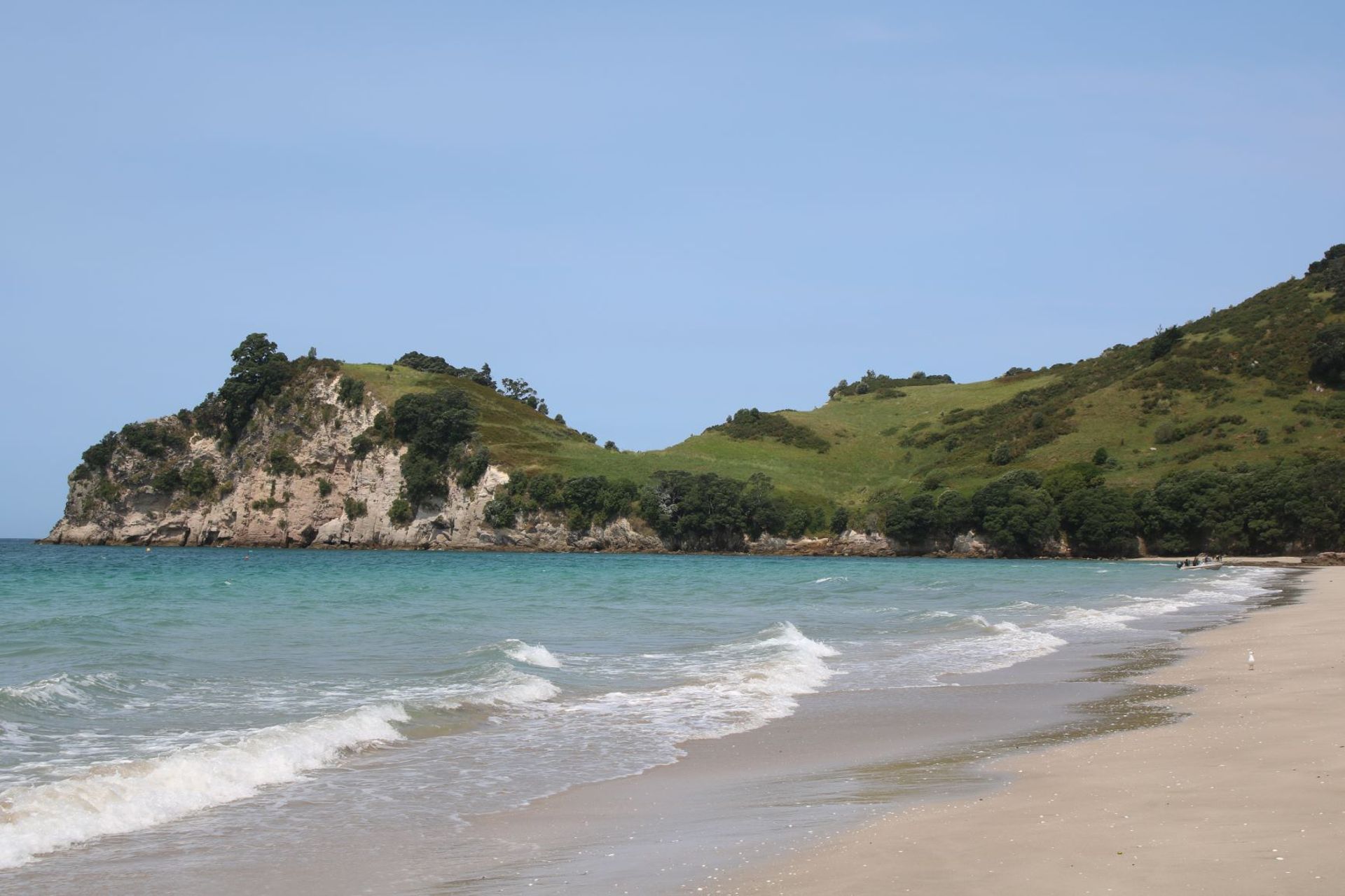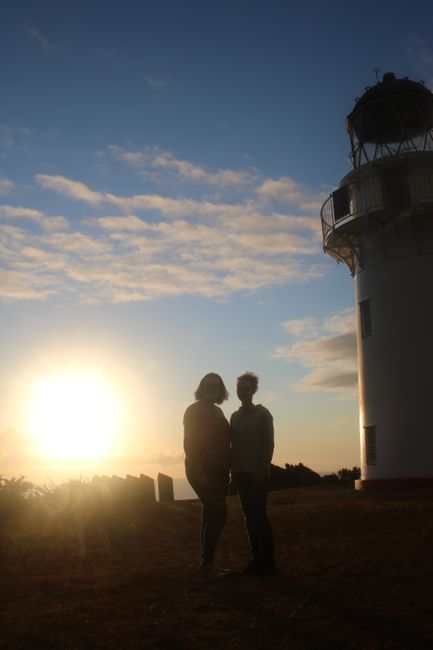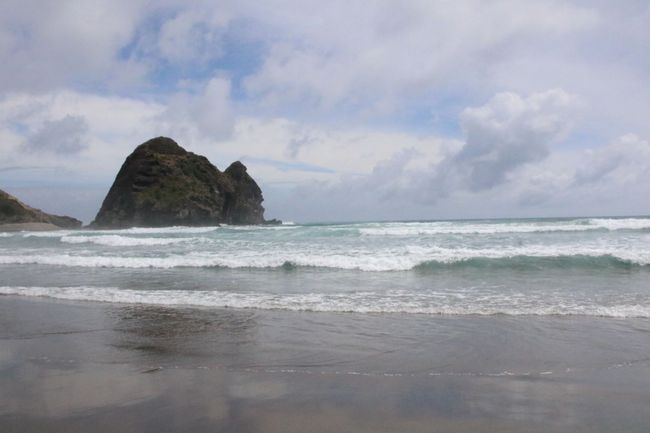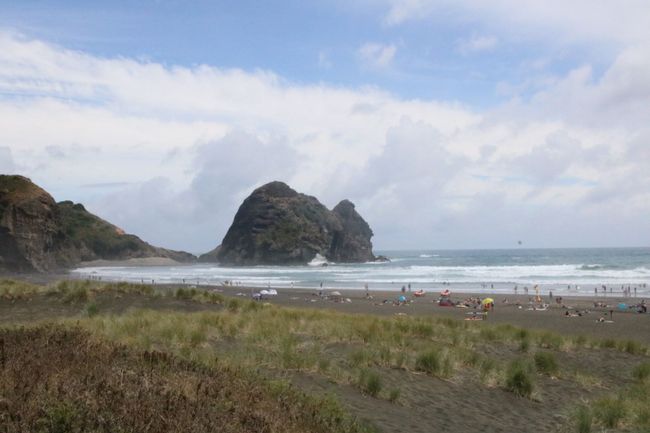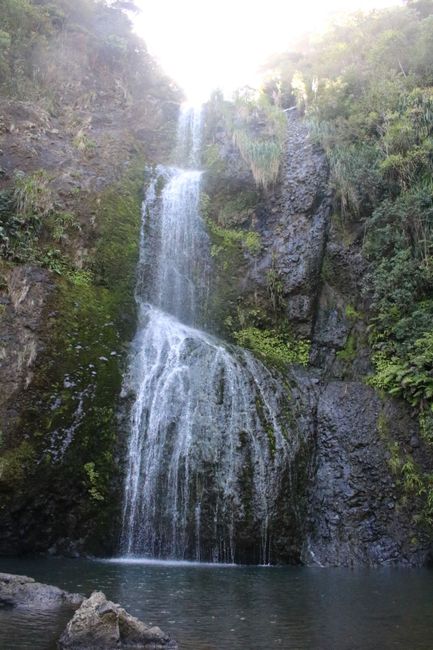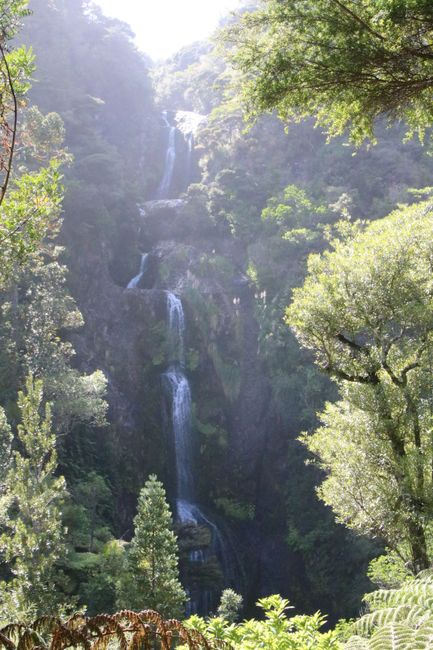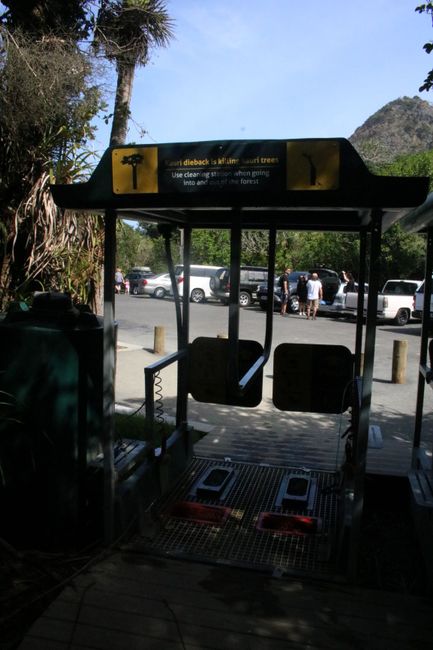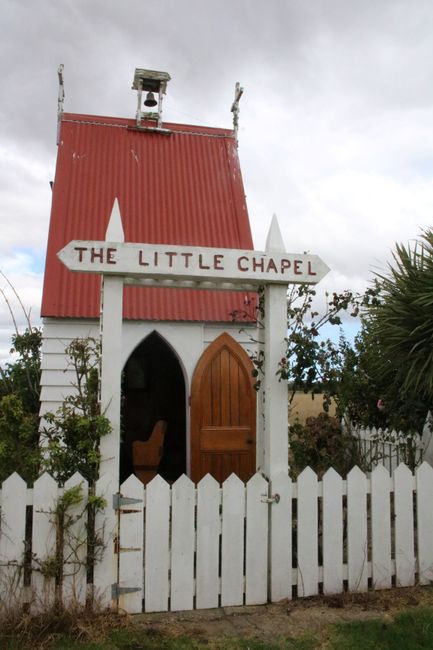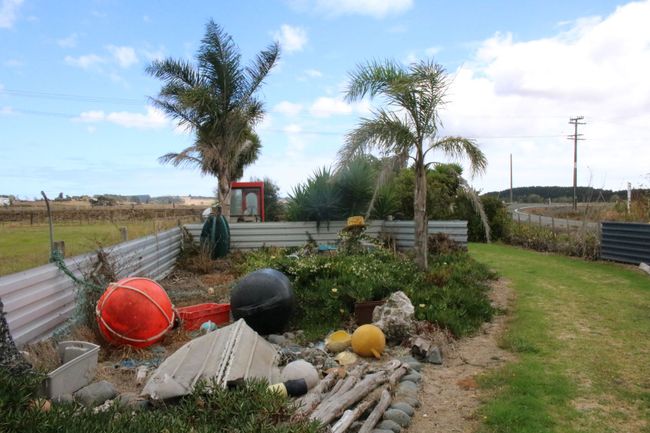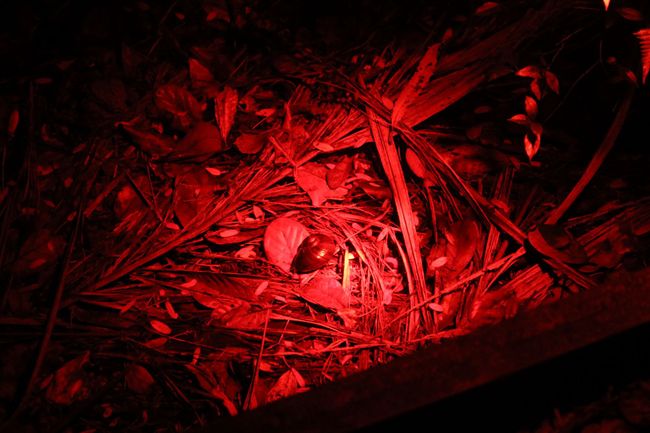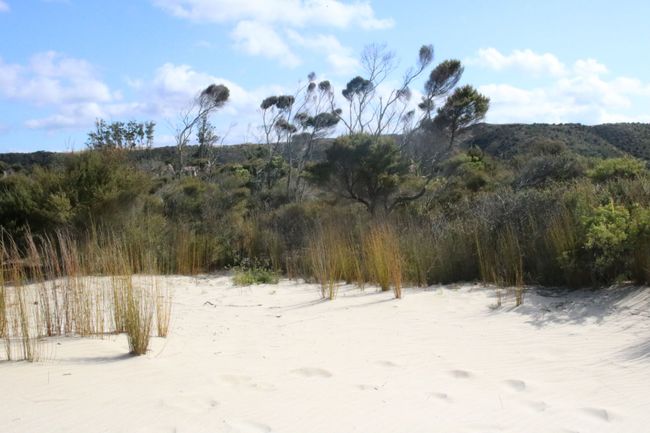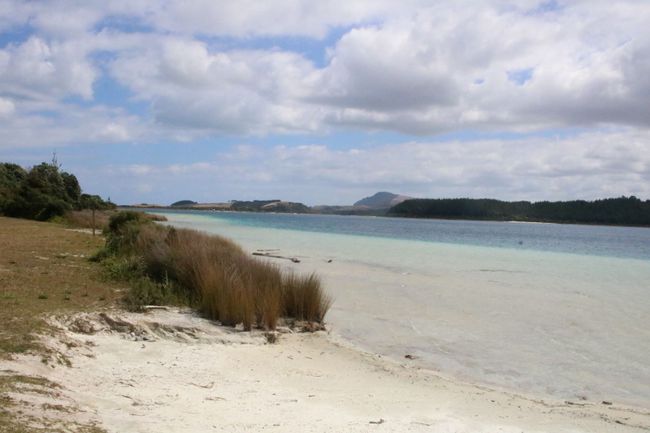- Chapter 19
ପ୍ରକାଶିତ |: 12.03.2020
ସମ୍ବାଦପତ୍ରକୁ ସବସ୍କ୍ରାଇବ କରନ୍ତୁ |
Chapter 19
Another point on our tour was the well-known black sand beach in Piha, especially popular with surfers. It can only be reached through small, narrow side streets. When we arrived, we found that it was very busy. We looked around the beach and observed what was going on. As expected, the black sand under our feet was burning hot.
The next day, we went to see the Kitekite Falls. We parked our camper and walked to the start of the track. Here, we had to brush off and disinfect our shoes before entering, in order to prevent the spread of the Kauri dieback disease and protect the rare Kauri trees.
As our first priority, we decided to hike to the origin of the waterfall. However, when we reached the top, it turned out to be rather unspectacular, so we quickly made our way back down.
From below, on the other hand, the waterfall looked impressive to us. It flowed into an artificial pool where you could swim. We watched it for a while before continuing our walk. From a certain distance, you could take in the full beauty of the waterfall.
When leaving the area, we also had to brush off and disinfect our shoes. To make sure everyone followed the rules, cameras were installed and a DOC employee supervised everything.
While driving to Trounson Kauri Park, where Kiwis are said to be, we made a stop at the smallest Chapel in New Zealand. The nice little garden was lovingly created for all visitors. We strolled through it, admired individual elements, captured some pictures, and then continued on our way.
Arriving at Trounson Kauri Park, we spent the day at the adjoining DOC campground. Our main mission was to spot a Kiwi. Since they are nocturnal birds, we had no choice but to wait until darkness fell.
So, at 9:00 PM, we set off on the hunt. Armed with a camera and our cell phone flashlights, covered with a red filter to protect the Kiwis from light. We walked the loop track twice that night. At one point, we heard rustling right next to us, but we were not lucky that evening.
The following day, we decided to book a tour of the park. We thought that the guide would know where the Kiwis are, so we were hopeful of being successful that night. But we were mistaken. It started at 8:30 PM. Together with four other couples, we boarded the bus. During the tour, we learned a lot about the Kauri trees and different plants. We also saw a Kauri snail, which is apparently very special. But what we had hoped for, to catch sight of one of the national birds, did not happen.
By now, we were feeling a bit down, but we still didn't want to give up. They say the third time's the charm. We wanted to give it one last try. We spent the day at Kai Iwi Lakes, to get some distraction, before deciding to set our alarm for 1:00 AM for the Kiwi hunt.
During yesterday's tour, the guide informed us that the Kiwis are supposed to be on the clearing at this time. So our first stop was exactly this clearing. To have better visibility, we prepared our flashlights beforehand and marched off.
When we arrived at the clearing, we first encountered one of the many rabbits living there. But then we heard rustling. We walked to the spot and shone our light into the bushes. Nothing to see. So we approached from another side, and there it was. A Kiwi. It strolled around in an area where we could observe it well, until it disappeared into the darkness. In the end, our effort paid off after all. Overjoyed, we went back to sleep and continued our journey to Cape Reinga the next day.
ସମ୍ବାଦପତ୍ରକୁ ସବସ୍କ୍ରାଇବ କରନ୍ତୁ |
ଉତ୍ତର
